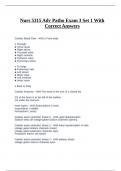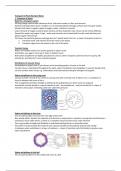Summary
Summary Introduction to Business Management, ISBN: 9780195992519 MNB 1501Business Management (MNB1501)
- Institution
- University Of South Africa (Unisa)
Summary study book Introduction to Business Management of Gawie du Toit, Barney Erasmus, Johan Strydom - ISBN: 9780195992519 (Chapter 1)
[Show more]






